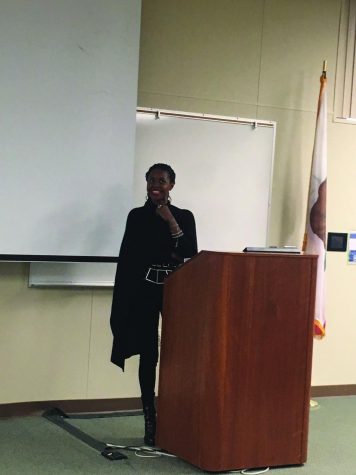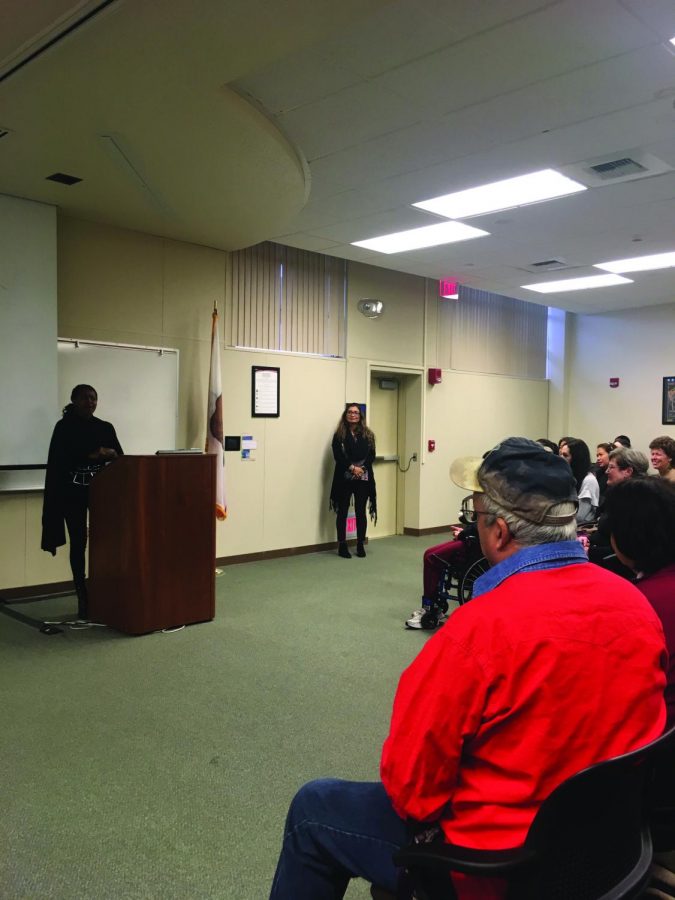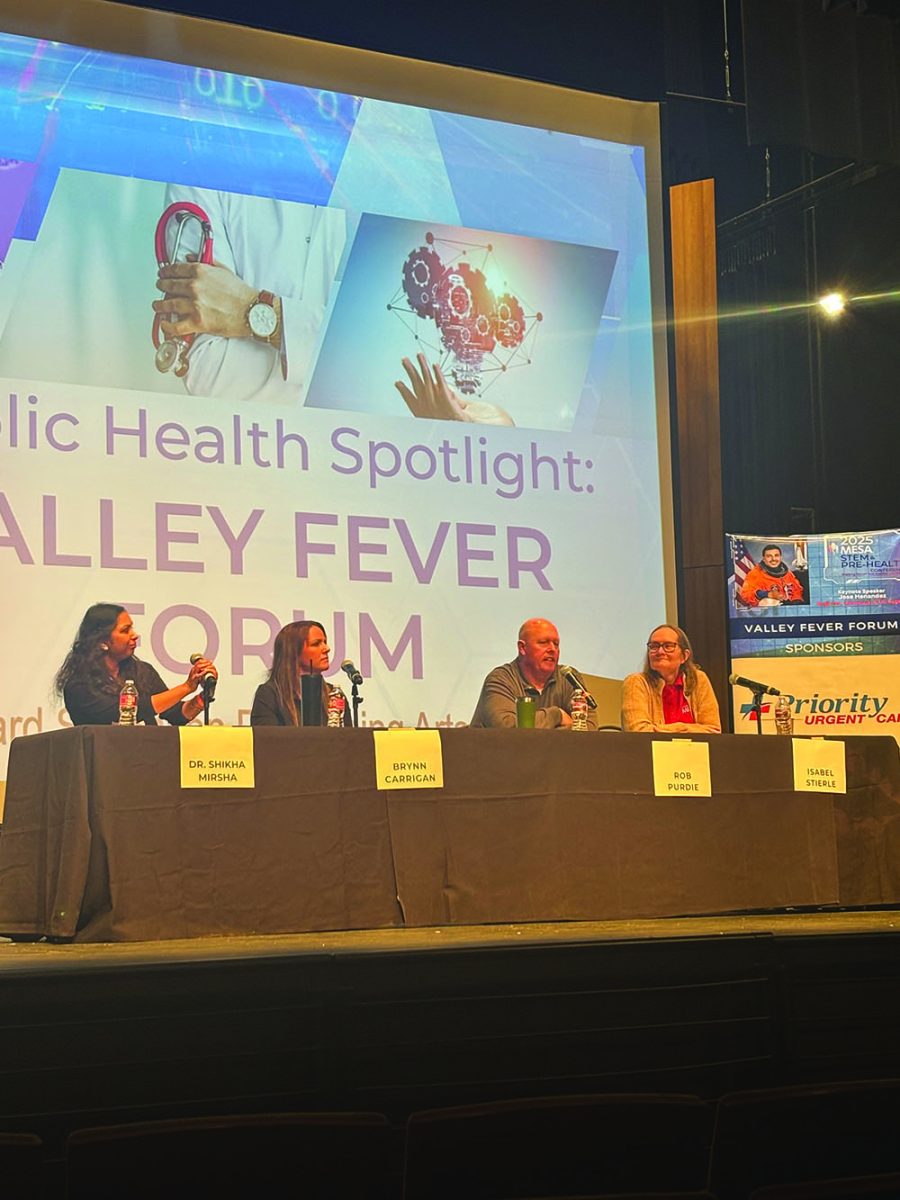Clemantine Wamariya shares her story at the Levan Center
Clemantine Wamariya recalls her passage through seven different countries with her sister to escape the Rwandan Genocide.
March 6, 2019
Clemantine Wamariya, storyteller, human rights activist and author, spoke about her early life and her memoir, “The Girl Who Smiled Beads,” at the Levan Center on Feb.28.
Wamariya is a Rwandan Genocide survivor who has become a speaker.
Wamariya began by saying she was currently living in San Francisco and for the last 10 years, has been on the road, “trying to figure out what is it that brings us together.” One of her ideologies she brought up was, “Which fruit are you?”
Wamariya said the question gets rid of things that separate us including race and gender.
She explained that she always begins her speeches by playing one of her favorite songs. She played the beginning of Nina Simone’s interpretation of “Here comes the sun,” by the Beatles. The lyrics “Here comes the sun little darlin’/ Here comes the sun/ I say, It’s all right, it’s all right/ Here comes the sun little darlin’/ Here comes the sun/ I say, It’s all right, it’s all right,” played over a hushed audience.
Next, Wamariya summed up all the drastic events that had happened to her and her sister Claire during the Rwandan Genocide. At the time Wamariya was only 6 years old.
“I had survived three wars. I had lived in nine different countries. I had been without a home,” she said. “I had been personally without a country. I had been a person without papers.”
Wamariya said she has experienced the opposite of tragedy in her life as well including graduating from Yale, receiving numerous awards, and reuniting with her family that she had not seen in 12 years on the Oprah show.
In 2014, Wamariya was invited to the 20th Commemoration of the Rwandan Genocide.
During the re-enactment of the Rwandan Genocide, Wamariya said men and women were being triggered left and right and were being forced to remember the pain they caused each other.
Wamariya recalled what happened 20 years ago on the hundred days of genocide.
“Neighbors killed neighbors because someone made up a story that their neighbors were not human. Fathers killed their children because someone said their children were poison,” she said.
Wamariya then spoke about her book, which took five years to write with the help of Elizabeth Weil, who is an investigative reporter.
Wamariya talked about her mother before reading an excerpt about her in the book.
“My mother loves Mary…mary meaning your gardener, your farmer, you take care of the land…you take care of everyone,” she said.
One of the lessons Wamariya’s mother taught her was the importance of sharing. In the excerpt from the book, Wamariya said her mother taught her sharing through an anecdote about oranges.
“We had our own orange. But if my mother didn’t cut the orange into more pieces for everyone to share, the correct answer to the test was to cut it into more pieces,” she said. “We were never to think this orange is mine. I’m giving you what’s mine. We were to think this orange is ours. We’re sharing what’s ours.”
Toward the end of her speech, Wamariya emphasized how upset she was when she crossed her first border saying it was imaginary.
“It’s not even real! It’s not even real. It’s made up. It’s not even real…people are trying to cross the borders and it’s not even real,” she said.
Wamariya urged the audience to read her book, understand it and to pass on the message.

Clemantine Wamariya, a human rights advocate, tells the audience she has kept a positive attitude despite the difficulties life has given her.






